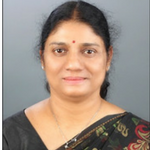
Vidya.K.R
District Medical office (Health), India
Title: An operational research on palliative care in a district of central Kerala, India
Biography
Biography: Vidya.K.R
Abstract
Palliative care is an approach that improves the quality of life of patients and their families facing problems associated with life-threatening illness, through the prevention and relief of suffering by means of early identification and impeccable assessment and treatment of pain and other problems. In Kerala, southern state of India, funding of palliative care projects by local self-government are made mandatory and thus making its implementation uniform and successful. Ernakulam being the most advanced district in the state had implemented mental health programmmes also through palliative care networks. This research work is intended to study the operational aspects of palliative care services for betterment of the progamme in the district.
Objective: To study the process and outcome of palliative care programme in Ernakulam
Methodology – Design:-Operational research-descriptive ecological study.
Setting:- Ernakulam District palliative care units - There are 116 Primary care units-101 in rural areas and 15 Urban areas , 12 Secondary care units in major hospitals ,14 secondary units in block hospitals and 1 tertiary care unit .
Study period: - Jan 2017 – Dec 2017.
Programme process and outcome: - Total of 24,287 Cases were registered and 18,304 (75.37%; 95% CI- 74.82-75.91) attended in outpatient departments. A total of 71,178 home care services were also given. Services were provided by 162 primary nurses, 36 secondary nurses, 24 physiotherapists and 4 medical officers exclusively for the programe along with Medical officers of health institutions and 1500 trained volunteers. Long term care is given for 10,175 patients with chronic morbidities. 6 crore Indian rupees were allocated in primary care units of rural areas through respective local self-governments and INR 2,16,000 were provided by national government. Volunteer’s Training sessions lasting for 3 to 5 days, staff review meetings, Basic courses of one and half months for Doctors and nurses, disease oriented training for care givers and Palliative Day observations were the other main process activities. Implementation of video calling facility at tertiary care Centre and mental health programs at urban areas were also initiated.
Conclusion;- Satisfactory implementation of palliative programme is made possible in the district with 32 lakhs population, through the concerted and focused efforts of all sectors of society with people’s participation and making it a people owned programme.

